There’s a story circulating about a guy who accidentally zapped his manly bits with bear spray. How these two items came into communion boggles the imagination. Being naked on a campsite is understandable, but being naked with the bear spray safety off? Maybe there was a bear who got left out of the story. Either way, the image of randy chappie doing the danse frénétique about tents and guy wires with a capsicum inferno raging just south of the equator does nicely open the topic of self-imposed suffering and canoe trips.
The joy of (self-imposed) suffering
In 1980, Don Starkell packed up his two sons and paddled 12,000 miles from Winnipeg, Manitoba, to the mouth of the Amazon River. Son Jeff had the good sense to bail in New Orleans, but son Dana went the distance and lived to tell the tale. Along the way, as recounted in Starkell’s classic Paddle to the Amazon, the lads had a dizzying variety of close calls, including a mock firing squad execution enacted by a bunch of bored Central American guerillas.
However, the tribulation lingering in my mind is an ankle scrape, exacerbated over time by saltwater, malnutrition and exhaustion that roiled and festered until Starkell’s ankle bone was visible in the crater.
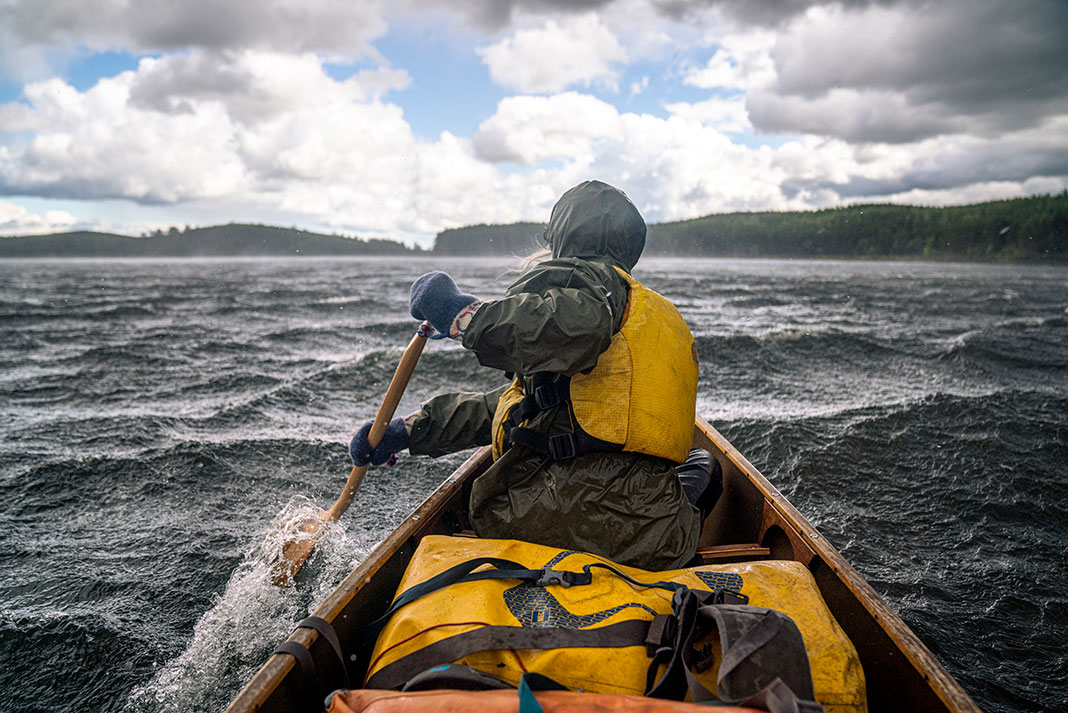
Lest you get the idea this behavior is a uniquely male predilection, recall the story of Victoria Jason, who had the notion kayaking through the Northwest Passage would be a good idea. In cutting the corner from Naujaat to Uqsuqtuuk in arctic Nunavut—a 450-kilometer drag in winter conditions—her body consumed every scrap of available fat. It then started devouring muscle, which affected her entire frame, including her heart. This left Jason so compromised she had to take a couple of seasons off to regain strength before returning and completing the trip.
Suffering builds character, right?
Jason and Starkell—I don’t know about fireball guy—have since passed of causes unrelated to their paddling journeys. However, when either wrote or spoke about their expeditions, they both often said tough conditions are the crucible of character formation. And they’re not the only ones.
Wise men and women of every tradition claim suffering can bestow clarity. “If you want to know the truth about the universe, about the meaning of life, and about your own identity, the best place to start is by observing suffering and exploring what it is,” writes Israeli self-help sage Yuval Noha Harari in his book, 21 Lessons for the 21st Century.
Immersed in nature in an unmediated encounter with the weather, the world and your frailties, a canoe trip is uniquely poised to do all Harari says, while also nurturing growth through the many possible trials and tribulations of the trail.
Paddling trips are good for the soul
One of the best things about paddling trips is taking what you think you might need to solve the problems of the days ahead and committing to the process of testing the idea by crossing the threshold between the relative safety and predictability of home to the relative risk and unpredictability of the wild. Often things don’t go quite as planned. Enter discomfort, difficulty, a little self-imposed suffering, and a lot of learning.
This can happen on trips of any length, of course, but the longer, the merrier. Experiencing a variety of topography, watersheds, weather conditions, and even the moods of travel mates all increase your chances of earning a hard-won lesson. But, if ever this seems too arduous or time-consuming, you can get naked, pull the safety pin off the pepper spray and find the meaning of life.
This article was first published in the Early Summer 2022 issue of Paddling Magazine. Subscribe to Paddling Magazine’s print and digital editions, or browse the archives.
Hurts so good. | Feature photo: David Jackson


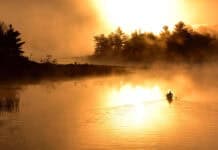
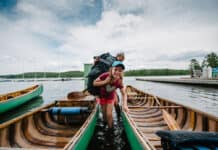
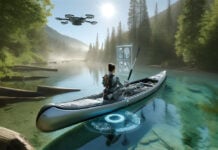
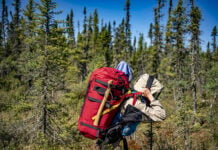
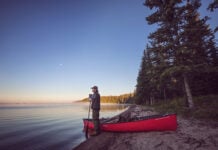


I like to blame my father for setting me on a path of outdoor adventure, at the ripe old age of 6 months old, when we took me on a May long weekend canoe trip in Algonquin Provincial Park, amongst the bugs, rain and wind. Apparently, it was quite an adventure. Of course, I don’t remember it, but it did set the table for a lifetime of global adventures full of adversity. As my outdoor partner for years, Bert East always said, the best parts of a trip are when adversity kicks in. No sunshine and calm water for Bert. Experiences with my Dad and the likes of John Latimer, Sam Hambly, Omer Stringer and others have made me the person I am. Much of that due to the tough lessons wilderness travel teaches through experience. Thanks Jim – you have always been an inspiration.
This reminded me of a time when I was fishing in such inclement weather in upper Ontario Canada, that by the time I called it a day, I was soaked to the bone and my rainsuit was in tatters from being tossed around in my small canoe. What is even more interesting is that we seem to remember these moments better than the perfect days with no adversity. I caught fish and can remember 40 years later what lures and locations like it was yesterday. I even bring these memories back to life while lying in bed on a sleepless night, and I drift off to some of the best sleep ever.
There is so much truth to this idea and it is such a part of the human condition. I, myself, have wondered why it is that I am out paddling and why I put so much thought and emotional energy into the preparation, even of short 1-hour trips. It occurred to me it is part of a seemingly strange mid-life crisis challenging me to know just how far and how hard I can go and how tough I can be. Your short treatise on the subject jumped out at me at once confirming and reassuring me that I am not completely alone in my madness. And your deft turning of phrases had me laughing out loud. Thanks for that. I am enjoying your articles.
“One of the best things about paddling trips is taking what you think you might need to solve the problems of the days ahead and committing to the process of testing the idea by crossing the threshold between the relative safety and predictability of home to the relative risk and unpredictability of the wild. Often things don’t go quite as planned. Enter discomfort, difficulty, a little self-imposed suffering, and a lot of learning.”
Everything went completely sideways on my last solo paddling trip over a year ago and I haven’t been out since… this paragraph might just get me back out there. Thank you!